
In the last few years, many cult-favorite hip-hop mixtapes from the 1990s and 2000s have made their way to streaming platforms, including Apple Music, Tidal and Spotify. Fan demand helped, but the hard work was done by sample clearance experts like Deborah Mannis-Gardner, who negotiated with copyright owners and labels whose songs and recordings were sampled on the tapes, to secure the necessary licenses.
In 2021 alone, streaming services started offering Mac Miller’s critically acclaimed 2014 mixtape Faces, A$AP Rocky’s 2011 debut Live. Love. A$AP; Megan Thee Stallion’s compilation project Something For Thee Hotties which includes a handful of her standalone freestyles from the last few years, and Nicki Minaj’s breakout 2009 project, Beam Me Up Scotty.
“This all started during COVID last year where artists were not delivering new material,” says Mannis-Gardner, CEO of DMG Clearances. “A lot of these artists and labels were thinking, how can we earn revenue?”
Mixtapes, which traditionally live rent-free on distribution platforms like DatPiff, Hotnewhiphop and YouTube, can become a goldmine for artists, copyright holders, labels, songwriters and producers once the samples they contain are licensed and subsequently made available on streaming services. Lil Wayne’s No Ceilings and Minaj’s Beam Me Up have so far generated $800,000 and $462,000 in revenue, respectively, Billboard estimates, while Mac Miller’s Faces brought in $2.1 million — about $1.5 million of that from vinyl records. Licensing the samples and interpolations isn’t easy, though – especially in a way that everyone can benefit.
“You have to crunch a lot of numbers budget wise and then make sure that everyone is going to make money,” Mannis-Gardner says. She knows “because I went through the hell of clearing it,” she notes with a laugh.
Mannis-Gardner, often referred to as the Sample Clearance Queen, did the licensing work for Miller’s Faces, Weezy’s No Ceilings, Minaj’s Beam Me Up Scotty, Drake’s compilation album, Care Package, and Megan’s Something For Thee Hotties, the latter of which required a quick turnaround.
“I was given five working days and I was like, ‘Oh, my goodness, could you have given me more time?’ And they’re like, ‘We’re sorry, but we know you can do it.’ And we did.”
Something For Thee Hotties, released this year by 1501 Certified Entertainment and 300 Entertainment, debuted at No. 5 on the Billboard 200 chart, selling slightly over 38,500 equivalent album units in the U.S. within its first week, according to MRC Data. That represents 38 million on-demand U.S. streams of the set’s tracks.
Mannis-Gardner says Republic Records president and COO Avery Lipman was “one of the geniuses who thought of the idea” to begin rolling out decade-old tapes, as a way to keep fans engaged and create sources of income for artists and labels during an unprecedented dip in the live music industry.
The first mixtape to hit major streaming platforms during the pandemic was Republic artist and mixtape king Lil Wayne’s 2009 No Ceilings, a longtime fan favorite, in August 2020. Of the 21 tracks on the recording, all but two included samples — most of them instrumentals pulled from popular songs from 2009, including Billboard Hot 100 top 10 singles “I Gotta Feeling” from the Black Eyed Peas and David Guetta’s “Sexy Bitch.”
Young Money Entertainment president and Wayne’s manager Mack Maine says clearing that many samples “was a frigging nightmare.” If it was up to him, he adds, all of Wayne’s estimated 29 mixtapes would be available to streaming, but “It’s a very tedious process. It takes months,” he continues, identifying high cost and “giving up splits” (i.e., percentages of revenue and ownership of a song) as the primary roadblocks.
Mannis-Gardner says that Wayne’s team was prepared to give up “a hundred percent of the publishing” due to how heavy the sample usage was, but she was able to keep a portion of the publishing for Wayne and the mixtape’s producers. In the end, ten 10 tracks that included instrumentals from Jay-Z, Kid Cudi, Dorrough and 3 Deep, among other acts, were not re-released, due to clearance issues.
The vetted version of No Ceilings went on to debut at No. 18 on the Billboard 200, with 23,000 album equivalents sold in the first week of its re-release.
Mannis-Gardner noted the various obstacles when clearing samples. In some cases, the rightsholder of the composition or recording may ask for a higher fee or split than an artist or label is willing or able to offer. Other times, featured artists or their labels may be unwilling to give clearances of their own, “The bottom line is when it’s an illegal [mixtape], it isn’t earning revenue,” she explains. “What I try to tell the copyright holders is, yes, there was a mistake made. Let’s rectify it. Let’s clear it. Because not only are you going to get the DSP and the revenue from the audio, it opens it up for synch revenue as well.”
While some copyright holders are willing to compromise, others — angry that their compositions or recordings were used without permission — won’t budge. “That’s when I usually get on my knees and beg and grovel and plead and say, ‘Please, what can we do to make it happen?”
Sometimes that’s not enough. In 2008, singer Karma-Ann Swanepoel, sued Lil Wayne over his 2007 track, “I Feel Like Dying,” which featured a sample of her vocals from Karma’s “Once.”
“She sued and felt like Wayne sold a million in the first week because [‘I Feel Like Dying’] was on the mixtape and he was performing it at all the shows and everybody thought that song would be on Tha Carter III,” Maine says. Now, Wayne can never perform the emo-rap song, which many say redefined hip-hop’s relationship with drugs.
A year before the Swanepoel suit, Prince’s lawyers sent Weezy a cease-and-desist letter after he used part of “Diamonds and Pearls” on the Curren$y-assisted track, “Diamonds and Girls.”
“God bless the legend,” says Maine of Prince. “He [didn’t] play about his sh–.”
Some creators won’t allow the use of a sample based on the message of the song. Maine says that Wayne twice attempted to sample Janet Jackson and got rejected both times. “It’s tough to get a Janet approval,” he explains. “She doesn’t want you to say certain words in the song, you gotta try to make it clean. She’s not letting you say the female dog word, things like that. It’s not like she won’t clear it, but she’s very particular about what she clears.”
While long-time fans may anticipate hearing the exact same mixtape they downloaded from DatPiff years ago, that’s rarely the case. Sometimes, some samples can’t be cleared, but other issues can also force changes.
“I sometimes get really upset when rappers are like, ‘This didn’t make the album because the sample wasn’t cleared in time,” Mannis-Gardner says. “I’m thinking you either never gave me the sample or you gave me 24 hours,” she explains. “There are so many layers of approvals. We can never just blame sample clearances.”
A$AP Rocky producer Clams Casino says that clearing samples wasn’t even an afterthought when he was working on Rocky’s career-altering 2011 mixtape, Live. Love. A$AP. “It was just a free internet mixtape,” says Casino, born Michael Volpe. “I never thought I would be making money from making music.”
As of Oct. 29, 2021, when RCA and A$AP Rocky Recordings re-released the mixtape on streaming services, Casino makes money from the five songs he produced on the original, “Palace,” “Bass,” “Wassup,” “Leaf” and “Demons,” plus a track that was added to the current version, “Sandman.” Three tracks from the original mixtape, “Purple Swag: Chapter 2,” “Out of This World,” and “Kissin’ Pink,” were cut due to sample clearance issues, says Clams, and a sample of an Ol’ Dirty Bastard interview was snipped from “Leaf” for the same reason. Live Love debuted at No. 43 on the Billboard 200 chart and No. 20 on the Top Rap Albums chart. The mixtape’s songs collectively registered 17.4 million U.S. on-demand streams in the Oct. 29-Nov. 4 tracking week, according to MRC Data.
“The 10-year anniversary felt like a monumental moment for us to celebrate its overall cultural significance and to highlight the impact that A$AP Rocky and the A$AP Mob have made specifically in hip-hop culture,” says Carolyn Williams, executive vice president of RCA Records. “It was only right that we went through the necessary processes to make this a permanent part of the commercial streaming music landscape for everyone to experience.”
“For the first time in 10 years we’re talking about [splits],” says Clams. “[When] it was online on the mixtape websites, there was not really a reason to do that.”
According to Mannis-Gardner, a lot of artists think this way. “If you sample a song, it has a value because you sampled it for a reason, to help promote you as an artist,” she says. “And therefore, there should be compensation. Nothing should ever be free in the music industry.”
[flexi-common-toolbar] [flexi-form class=”flexi_form_style” title=”Submit to Flexi” name=”my_form” ajax=”true”][flexi-form-tag type=”post_title” class=”fl-input” title=”Title” value=”” required=”true”][flexi-form-tag type=”category” title=”Select category”][flexi-form-tag type=”tag” title=”Insert tag”][flexi-form-tag type=”article” class=”fl-textarea” title=”Description” ][flexi-form-tag type=”file” title=”Select file” required=”true”][flexi-form-tag type=”submit” name=”submit” value=”Submit Now”] [/flexi-form]
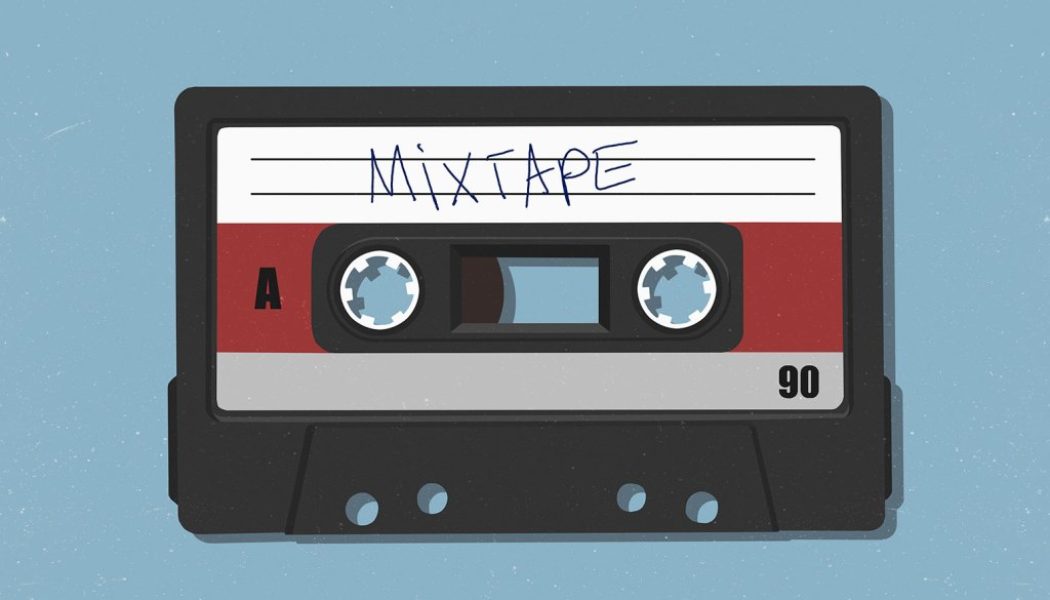
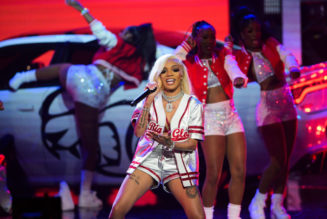

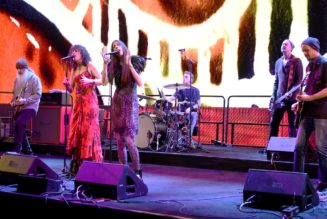
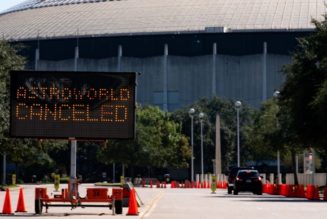

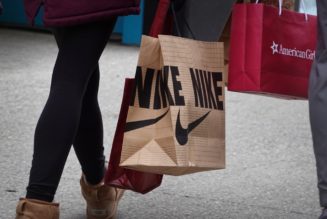
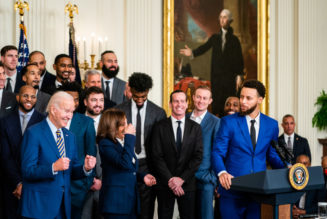


Tagged: business, Copyright, entertainment blog, Licensing, mixtapes, music blog, music streaming, Streaming